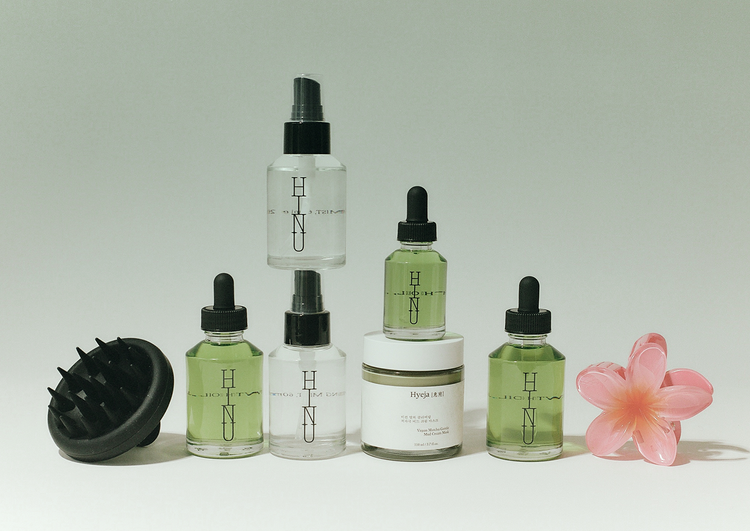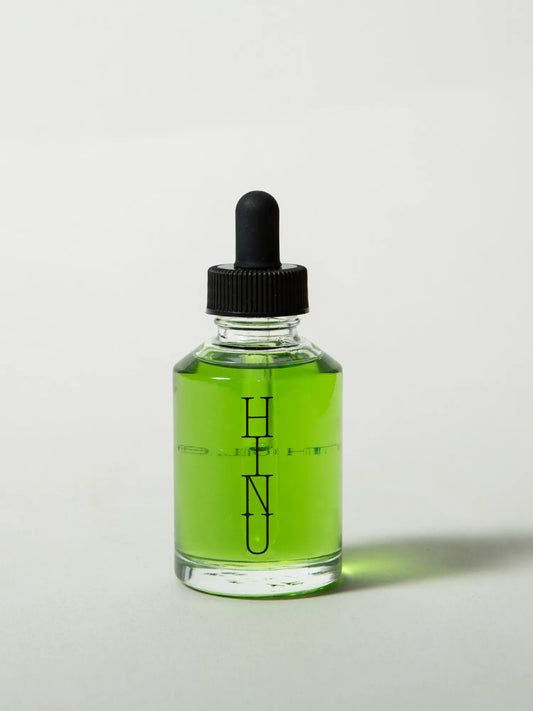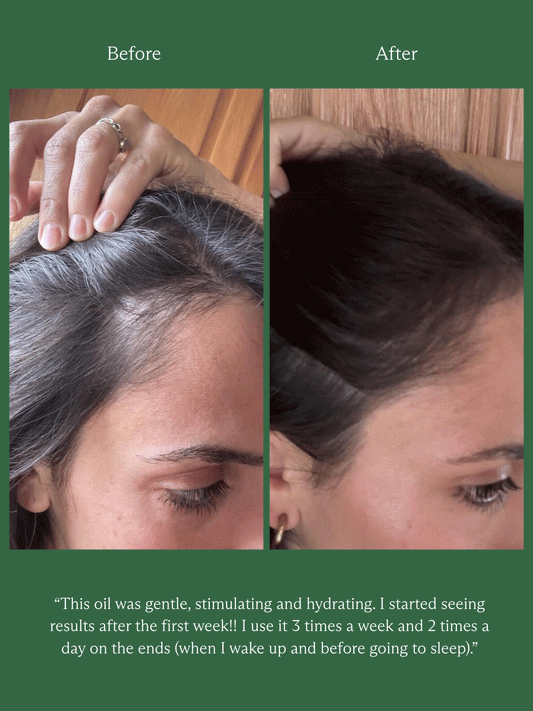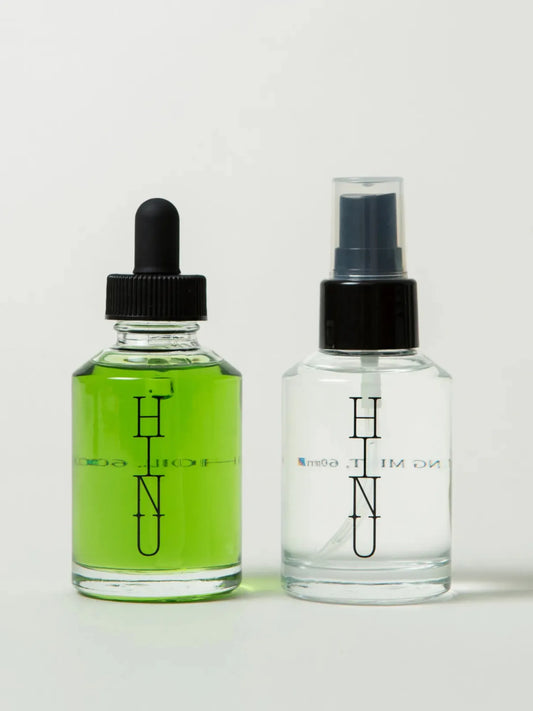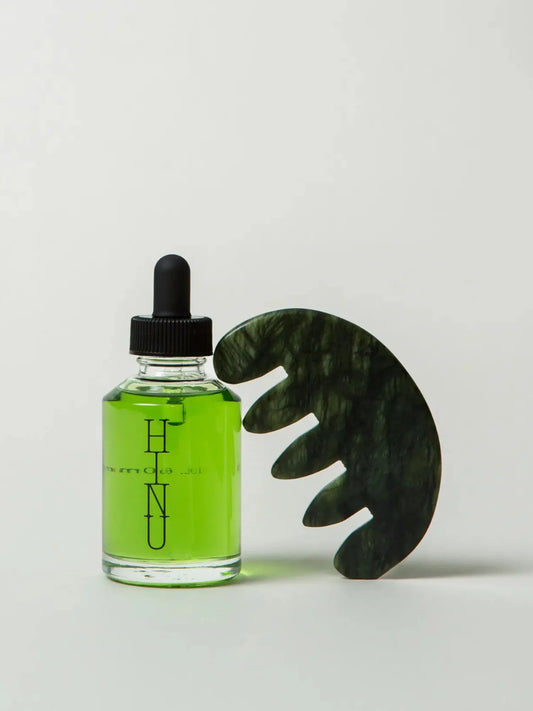
There has been a fair amount of research conducted on the benefits of forest bathing. One study found that spending time in a forest can lower levels of the stress hormone cortisol, as well as lower blood pressure and heart rate. Other research has found that forest bathing can improve immune function, and may even have anticancer effects.
In addition, being in nature has been shown to improve mood and cognitive function, and may even have the ability to reduce the risk of developing certain mental health conditions, such as depression and anxiety.
These benefits can have meaningful effects on the health of our hair and skin. How does this work? Read on to find out...
Forest bathing reduces hair fall
Stress is often a major contributor to hair fall. For example, there are several different types of hair loss that can be caused or exacerbated by stress, including telogen effluvium and alopecia areata.
Telogen effluvium is a type of hair loss that occurs when the hair's growth cycle is disrupted. Under normal circumstances, about 90% of the hair on your head is in the anagen (growth) phase, while the remaining 10% is in the telogen (resting) phase. After the telogen phase, the hair falls out and is replaced by new hair.
During times of stress, the body may shift more hair into the telogen phase, leading to an increase in hair shedding.
Thus, spending time in nature is a free and easy way to manage our stress and improve both our mental health and overall hair health.
Cortisol, collagen and hair growth
In addition to reducing hair fall, the reduced levels of stress can also positively impact hair growth through improved levels of collagen synthesis.
This is achieved through the relationship between cortisol - a stress hormone and collagen - an important building block of healthy hair.
Cortisol is a hormone that is produced by the adrenal gland in response to stress. It plays a number of important roles in the body, including regulating blood pressure, metabolism, and the immune system.
Cortisol has been shown to have an effect on collagen production. Some research has suggested that cortisol can have a negative effect on collagen production. For example, high levels of cortisol can lead to decreased collagen synthesis and degradation of existing collagen in the skin and hair. This can result in hair that is thin, fragile, and prone to ageing.
How much time in nature?
According to studies, the minimal amount of time needed to dramatically improve your health and well-being is two hours each week spent in nature. This can be accomplished in a single session or over the course of numerous trips.
It is also important to note that the quality of the experience is often more important than the quantity of time spent in nature. Instead of trying to spend a certain amount of time in nature, the key is to fully engage with your surroundings and allow yourself to relax and unwind. This means finding a location that is peaceful and free from distractions and allowing yourself to fully engage your senses as you spend time in nature.
Overall, the research supports the case that forest bathing can be a simple and effective way to improve physical and mental health, and is something that everyone can do to improve their well-being.
